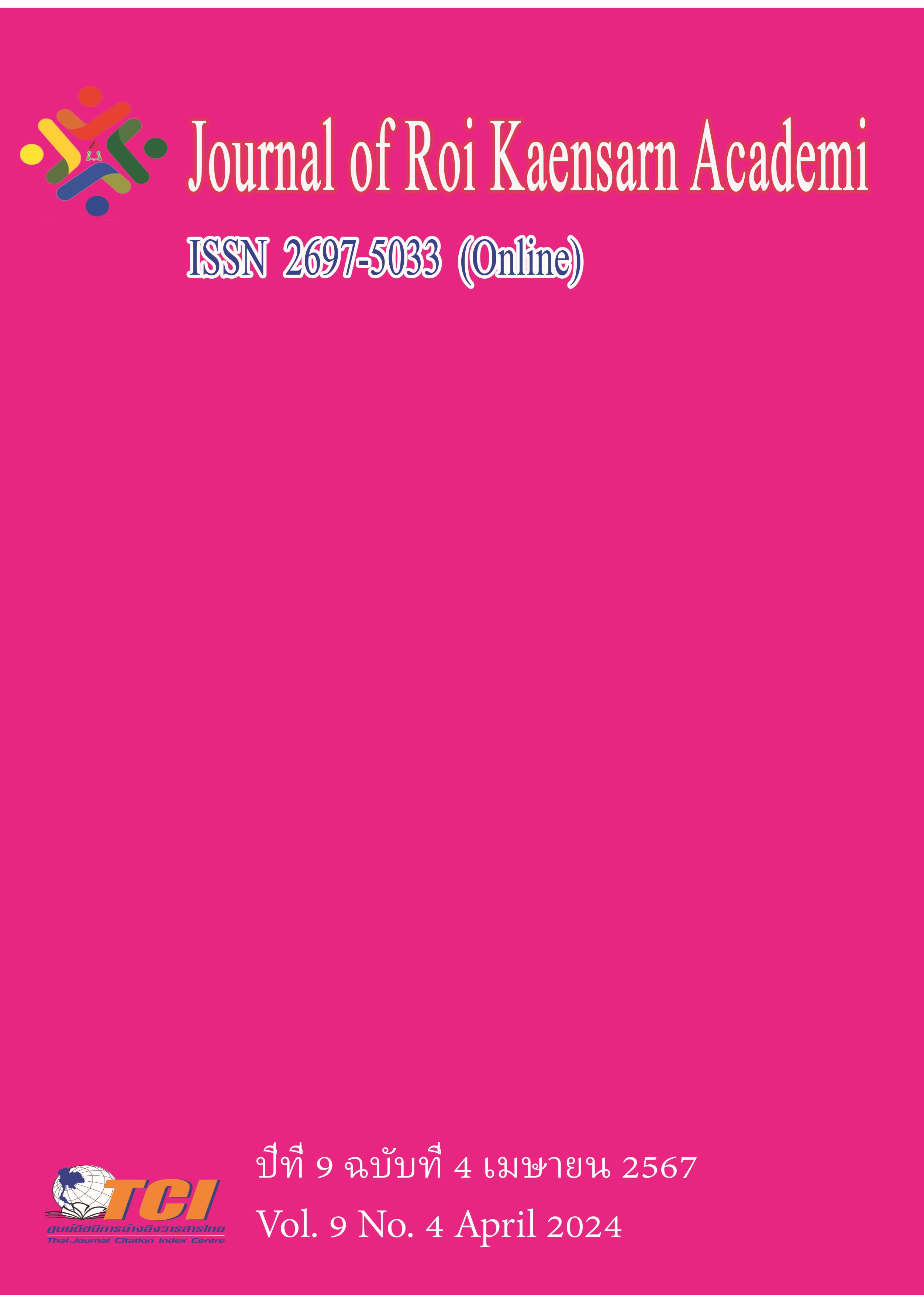The Guangzhou Modern Opera Performance Book
Main Article Content
บทคัดย่อ
From problems that have accumulated for a long time, experts have given advice and solutions by writing a performance book on opera vocal techniques, paralleling music score and theory, providing a broad concept, and targeted sound skill training.
The research article aims to study Guangzhou Modern opera and to write Guangzhou Modern opera performance book. The researcher used quantitative research methods to gather data from three experienced key informants, constructing the Guangzhou modern opera book. The book was verified by three academic institution specialists, and the researcher created study instruments such as the verified form and structured interview form.
Guangzhou Modern Opera is a significant aspect of Chinese opera, influenced by Western music and reflecting the social status quo. It features vocal music styles such as arias, duets, and choruses, enriching national operas and creating various singing styles. Opera training helps students master stage scheduling and collaborator relationships, fostering cooperation between soloists and orchestras. Technology can serve singing, and singing improves art. The selection of opera not only promotes comprehensive stage practice but also helps students learn opera vocal skills in professional classes, enhancing their performance on stage. Performance books are crucial in teaching vocal music in Guangzhou, representing artistic works in a literary context. The Guangzhou Modern Opera Performance Book is a comprehensive guide for vocalists, covering various aspects of the art form, including theoretical information and singing exercises. The book is based on years of teaching experience and provides a clear understanding of works that can help students advance and make significant strides. The Guangzhou Contemporary Opera Performance Book was evaluated by three experts, who awarded full points for its professional material layout and general quality.
Article Details
เอกสารอ้างอิง
Dai, X. (2020). A brief analysis of the importance of sound in music. Science Herald Academic, 2 (72). doi:10.5790/hongkong/9789888455812.003.0009. ISBN 978-988-8455-81-2. JSTOR j.ctt22p7jf7.14.
Dolores, M. H, (1964). "Musical Elements of Chinese Opera". The Musical Quarterly. 50 (4), 439–451. doi:10.1093/mq/L.4.439. JSTOR 740955.
Haitao, Y. & Hirunrux, S. (2023). Problems and Solutions of Vocal Music Teaching in Hezhou University in China. Journal of Modern Learning Development. 8 (6), 194-200. https://so06.tci-thaijo.org/index.php/jomld/article/view/260700
Hongqian, W. (2023). Xiu hebao folk song:Compiling the Exercise Book for Piano Accompaniment. M.M.A Dissertation. Bangkok Thonburi University.
Jianwen, L, (2013). On the cultivation of sound concepts in advanced vocal music teaching. Education and Teaching Forum. 15 (4), 45-46.
Kong, J. (2015). On the artistic characteristics and singing style of modern national advanced vocal music. Sound of the Yellow River. 51 (4), 55-56.
Literature and History Research Center of the People's Government of Guangdong Province, (2016). Folk Art Chronicles of Guangdong Province, Sun Yat-sen University Press. 12 (4), 327-328.
Lu, D. (2019). A brief analysis of the stylistic characteristics of "three singing methods" of advanced vocal music. Small and medium-sized enterprise management and technology. 9 (04), 109-110.
Ma, D. (2020). The development and stylistic characteristics of my country’s national advanced vocal music. Film review. 06 (4), 95-96.
Mackerras, Colin (1994). "Peking Opera before the Twentieth Century". Comparative Drama. 28 (1), 19–42.
Qingwen, L & Yinghua, L. (2013). Oriental Sound of Nature Guangdong Music, Guangdong Education Press. 06 (4), 87-88.
Shao, H. (2021). A Brief Discussion on the Importance of Articulation and Articulation in Singing. Music Forum. 14 (4), 139-140.
Wang, P. (2020). A brief discussion on the development and style characteristics of national advanced vocal music. Big stage. 4 (12), 65-67.
Wang, Y. (2013). Study on the Development and Style Characteristics of my country’s National advanced vocal Music. Music Time and Space. 14 (4), 141-143.
Wu, J, (2021). Modern national advanced vocal music and singing styles from the perspective of cultural integration. Journal of Pu'er University, 2021. 37 (05), 92-94.
Xian, T. (2023). Research on the evolution of Chinese opera concepts since the 20th century. Literary Contest. 9 (4), 198-202.
Xian, T. (2023). Research on the evolution of Chinese opera concepts since the 20th century. Literary Contest, 2023, (09), 198-202.
Xing, F. (2018). "Visual Communication through Design". Staging Revolution: Artistry and Aesthetics in Model Beijing Opera during the Cultural Revolution. Hong Kong University Press. 15 (4), 196–217.
Yingxi, L. (2006). Review and prospect of the glorious 50 years of Guangdong music. Northern Music. (11), 41-42.

